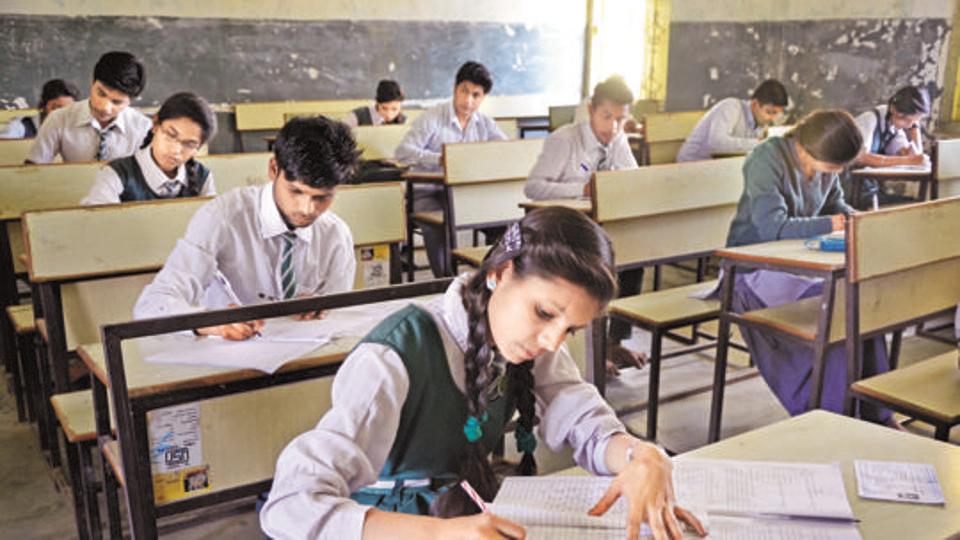This is the third part of a multiple part series on the Draft National Education Policy by tfipost.com, where we will analyze the changes recommended by the drafting committee for in sequence to the age of the child and with the current status.
The first part is on Foundation Stage and the second part is on Preparatory (or Latter Primary) stage. To read the first and second part, click on links given below:
The Draft National Education Policy proposes a restructuring of stages from 10+2 to 5+3+3+4 which will correspond with age ranges of 3-8, 8-11, 11-14, and 14-18 years, respectively. This part is on 3 years of the Middle (or Upper Primary) stage corresponding with Grades 6, 7, 8.
The 3 years of the middle stage will introduce subjects of sciences, mathematics, arts, social sciences, and humanities. The focus on ‘specialized subjects’ and ‘specialized teacher’ will increase on this stage. In the previous ‘preparatory stage’, there would be generalist teachers for language and numerical skills but at this stage, specialized teachers would be introduced for these subjects as well as arts and physical education. The NEP draft says that “Every student has innate talents, which must be discovered, nurtured, fostered, and developed.”
To promote specialization at a young age for talented and gifted students, the NEP proposes to, “Establish topic-centered and project-based clubs at the school, school complex, block, and district levels… and “a system of centrally funded topic-based residential summer programmes across the country in various subjects for students with singular interests and talents.” This would bring together the students with similar interest and talents together and encourage them to cooperate, share the ideas and innovations.
On the languages front, a course on “The languages of India” would be introduced to students sometimes between Grades 6-8 in which “The common phonetic and scientifically-arranged alphabets and scripts, their common grammatical structures, their origins and sources of vocabularies from Sanskrit and other classical languages,” will be taught. The students will also get to learn the region’s communities which speak these languages. As per the NEP draft, “Such a class would give them both a sense of the unity and the beautiful cultural heritage and diversity of India, and would be a wonderful icebreaker their entire lives as they meet people from other parts of India.”
Another two-year course on any classical languages would be introduced to students at this stage. This would teach the students about the rich linguistic and cultural heritage of the country. The students who have already taken Sanskrit among three languages could learn another classical language like Tamil. The promotion of classical Tamil among the students of North India would bring linguistic divide between north and south India.
The students will also be taught ‘communication’ in every Grade of middle and secondary stage. The students will be asked to present their views on various topics and issues as well as asked to discuss ethical dilemmas and explain the creative solution to particular problems in front of the whole class.
The few other courses which will be introduced in the Middle stage are as follows:
1. Survey course on vocational skills and crafts in Grades 6, 7, or 8
2. Basic health and safety training, as a service to oneself and to those around us
3. Courses on ethical and moral reasoning
4. Course on critical issues facing the community, the country, and the world for all students in Grades 7-8
The draft also proposed for census examinations in for 3rd, 5th and 8th standard students “To track students’ progress throughout their school experience, and not just at the end in Grade 10 and 12 – for the benefit of students, parents, teachers, principals, and school management committees in planning improvements to schools and teaching-learning processes.”
The National Education Policy draft aims to completely overhaul the assessment system. “The culture of assessment must shift from one that primarily tests rote memorisation to one that is more formative, promotes learning, and tests higher-order skills.” It is very evident that the NEP draft aims to prepare students for issues of life rather than for exams. Overall the draft proposal seems quite ‘revolutionary’ and it aims to shift the focus from ‘rote learning’ to ‘critical thinking’ and encourage ‘problem-solving approach’ among students. If implemented, the policy will make the life of children more fun and less burden and they will be prepared to face the next stage of life.
